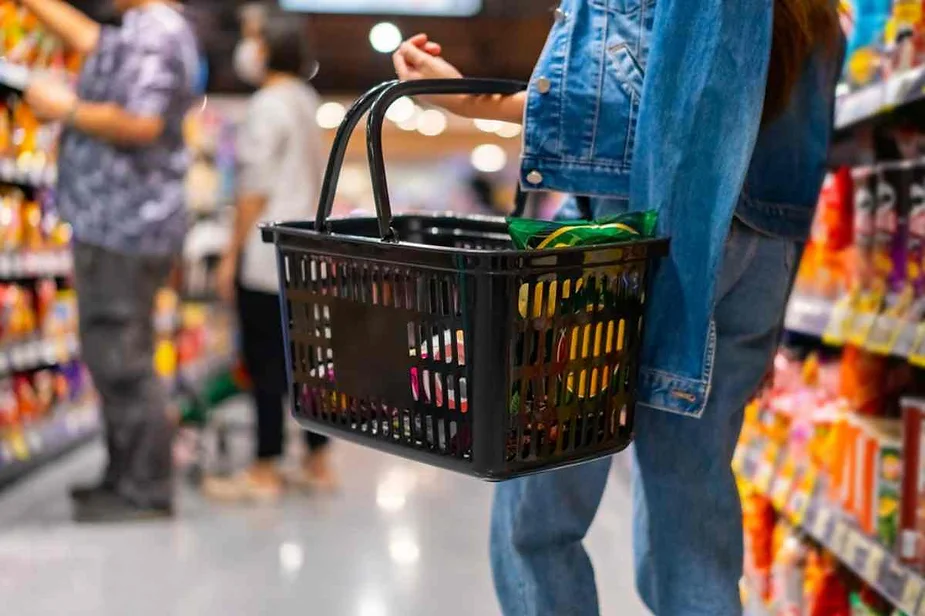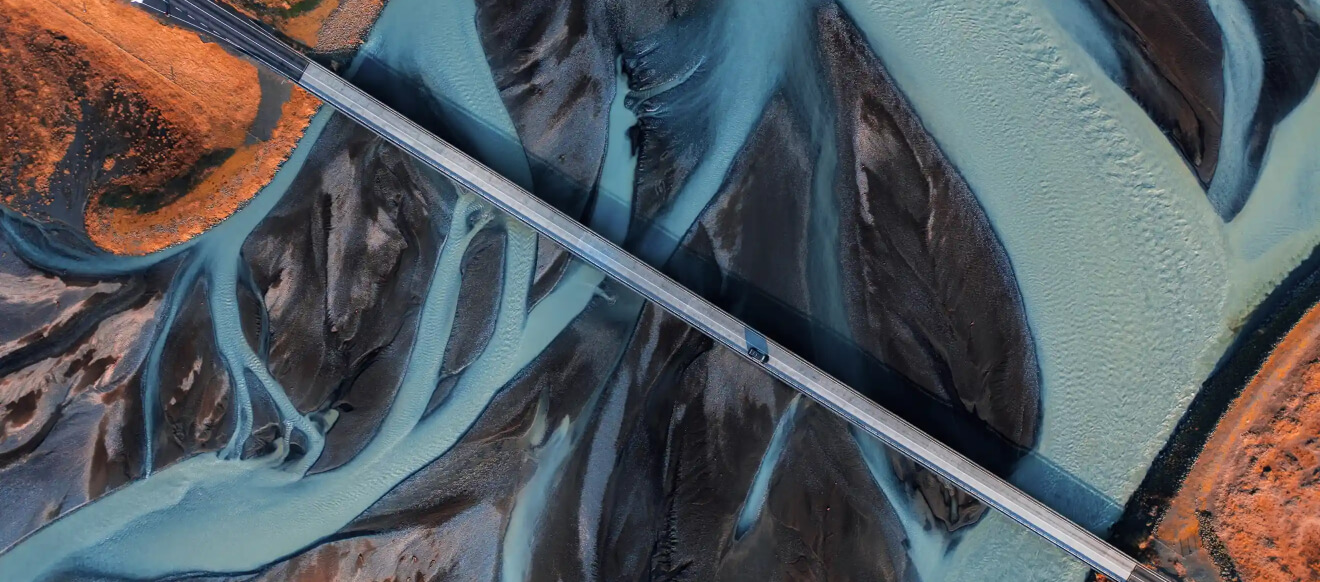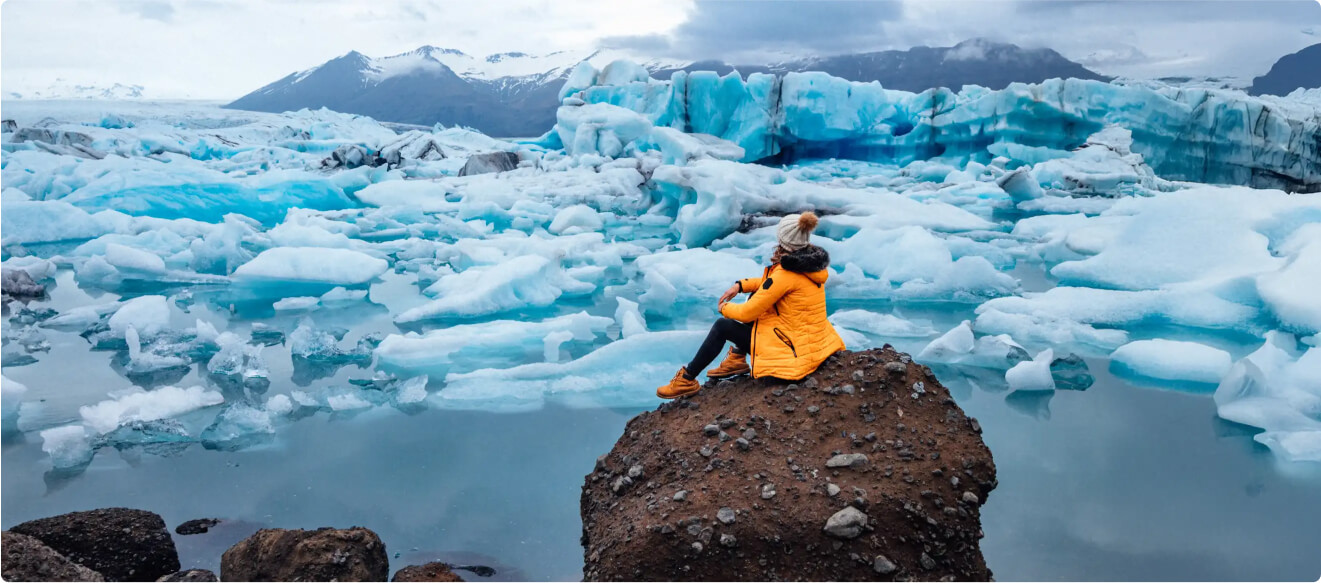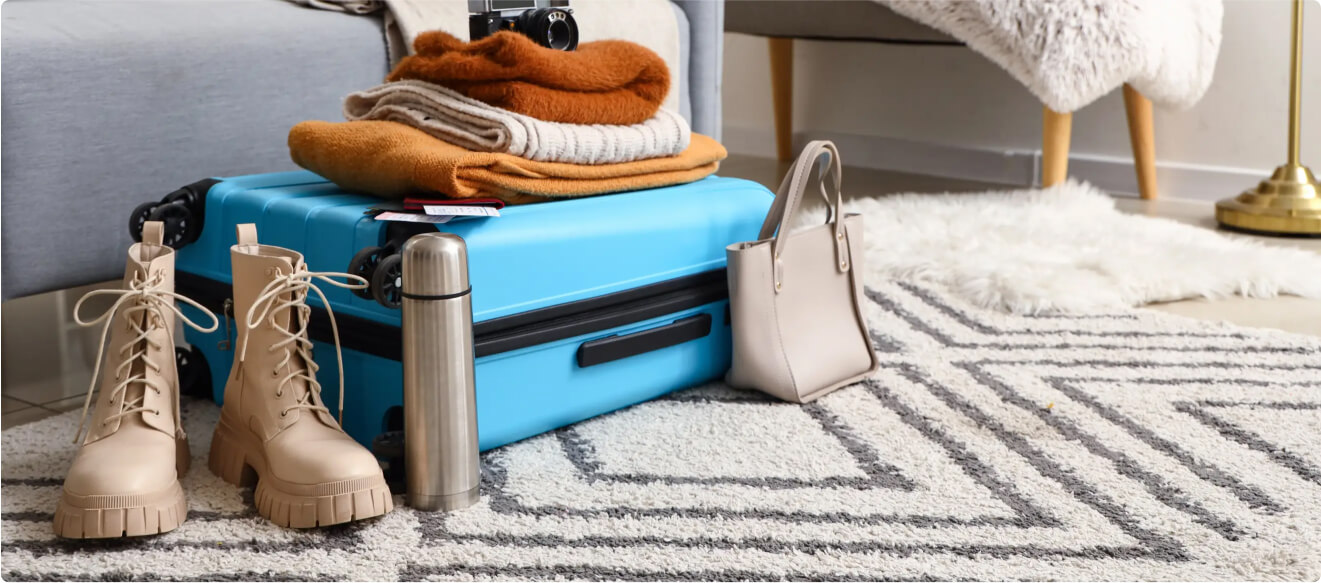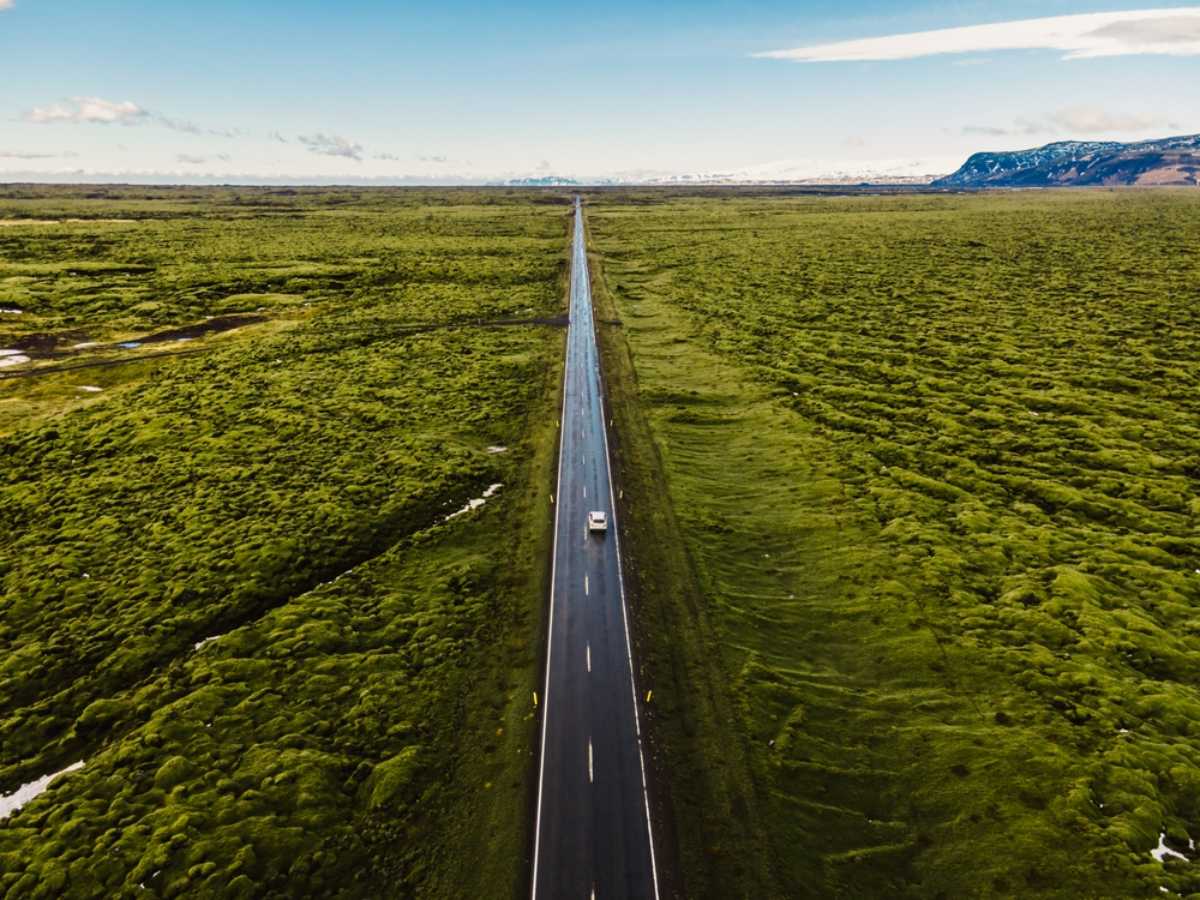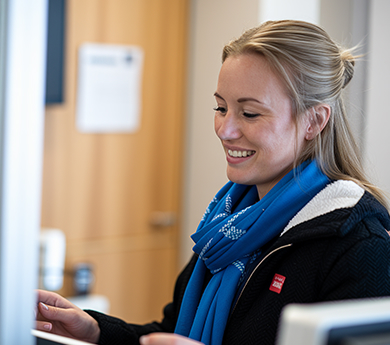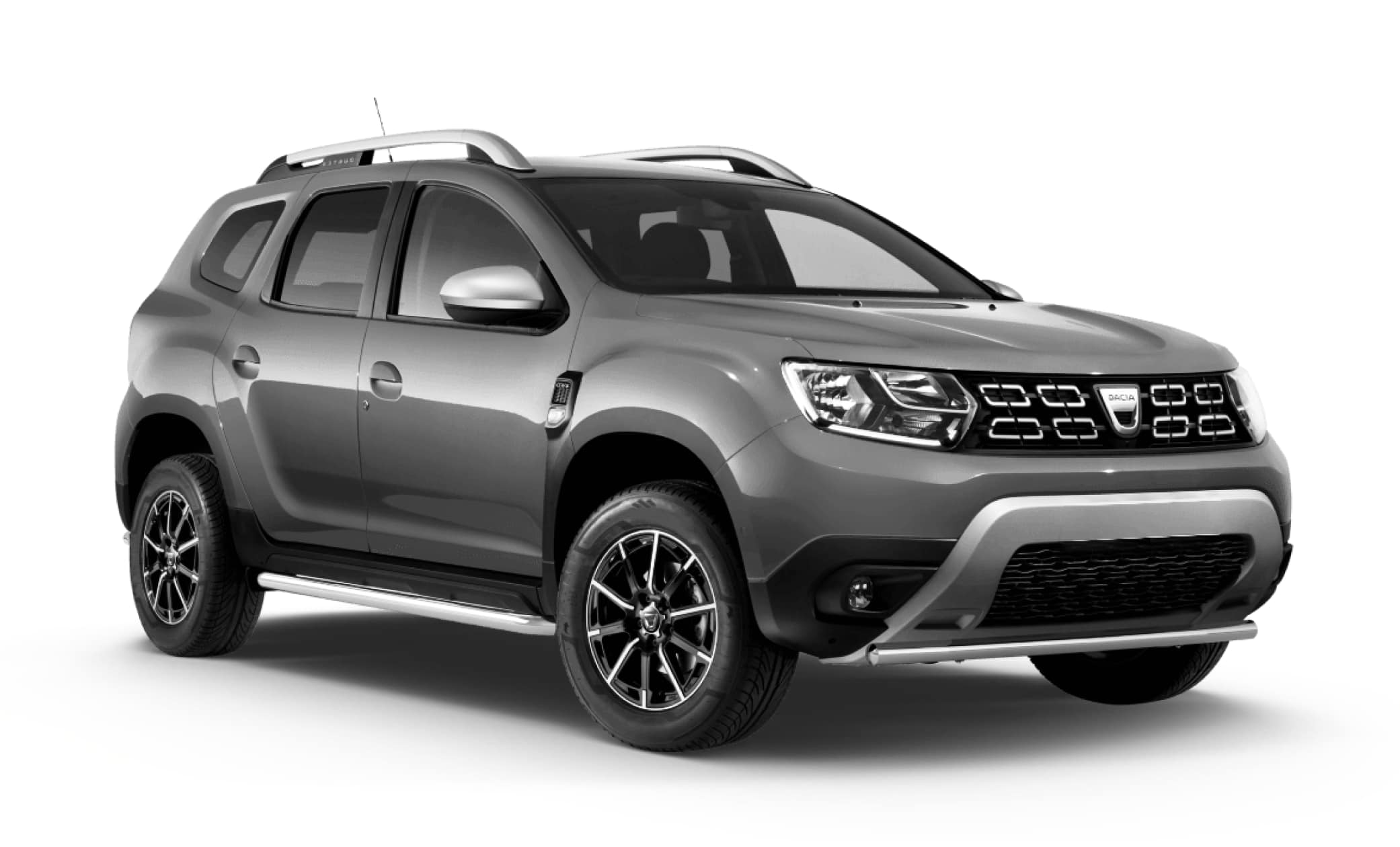Iceland is typically recognized as one of the most expensive places in the world, including for things like groceries. The country doesn’t have much farmland, and import rates are high, catching many travelers by surprise.
However, if you take the time to get familiar with grocery shopping in Iceland, you can reduce your budget and enjoy unique local food without the high cost. You’ll learn how to find the most budget-friendly stores and specialty shops with imported food to help you get what you need.
We’ll share how much common groceries cost, how to save money, things you should definitely try, and what you should take on your road trip. Whether you’re spending most of your time in Reykjavík or will be driving around the Ring Road, we’ll help you decide where to shop and how to get the most out of your grocery shopping experience in Iceland.
Overview of Grocery Stores in Iceland
Visiting an Iceland grocery store is all part of the experience, giving you insight into the local culture and helping you save money. Iceland has a high cost of living, which translates to high prices when dining out. Grocery shopping during your trip will help you experience local cuisine at a reduced cost.
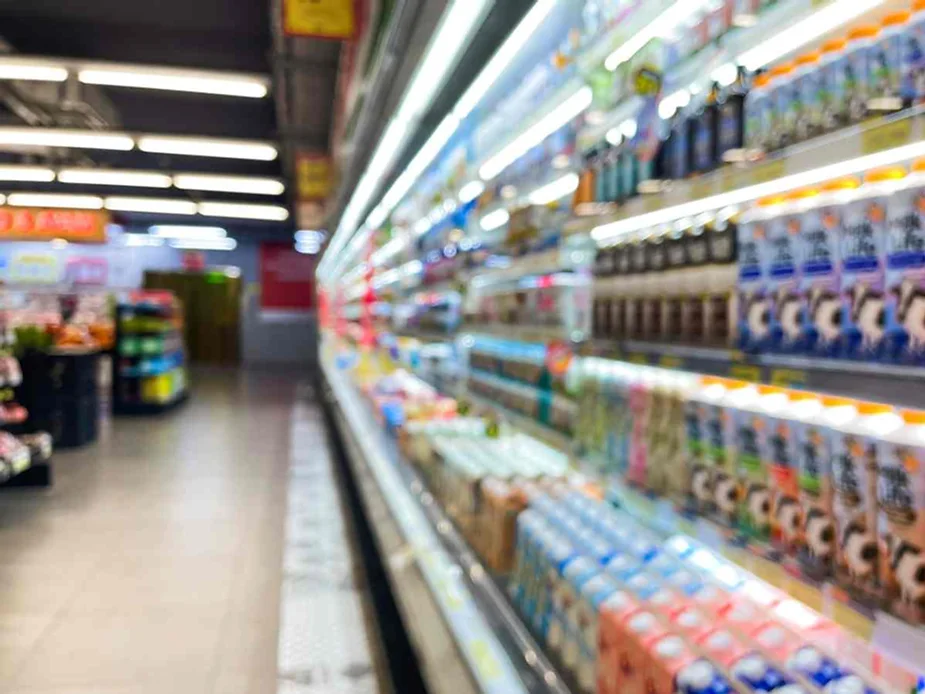
You will find supermarkets like Bónus and Krónan throughout the country with all the products you need, including fresh produce and traditional Icelandic foods, so you can prepare meals yourself. Keep in mind that remote areas may not have a full-fledged grocery store and may only have a small local shop or convenience store. Schedule your stop strategically to guarantee you have what you need without paying higher prices.
Shopping in bigger towns will help you save time and money, giving you more time to spend sightseeing. Buying food at local grocery stores in Iceland gives you a better travel experience and a deeper connection to Icelandic life.
Budget-Friendly Shops
You will save more money if you know which shops have the best deals and cheapest prices. There are several budget supermarkets that have everything you need at a lower price, helping you make the most of your food budget.
These shops have competitive prices and good selections. The following are some of the top budget-friendly stores with multiple locations nationwide.
Bónus
Bónus remains one of the top choices for affordable grocery shopping in Iceland, particularly in Reykjavík. Some compare this grocery store to Aldi. They aim to keep costs low for essential items like bread, milk, eggs, canned goods, and frozen foods, many of which aren’t branded.
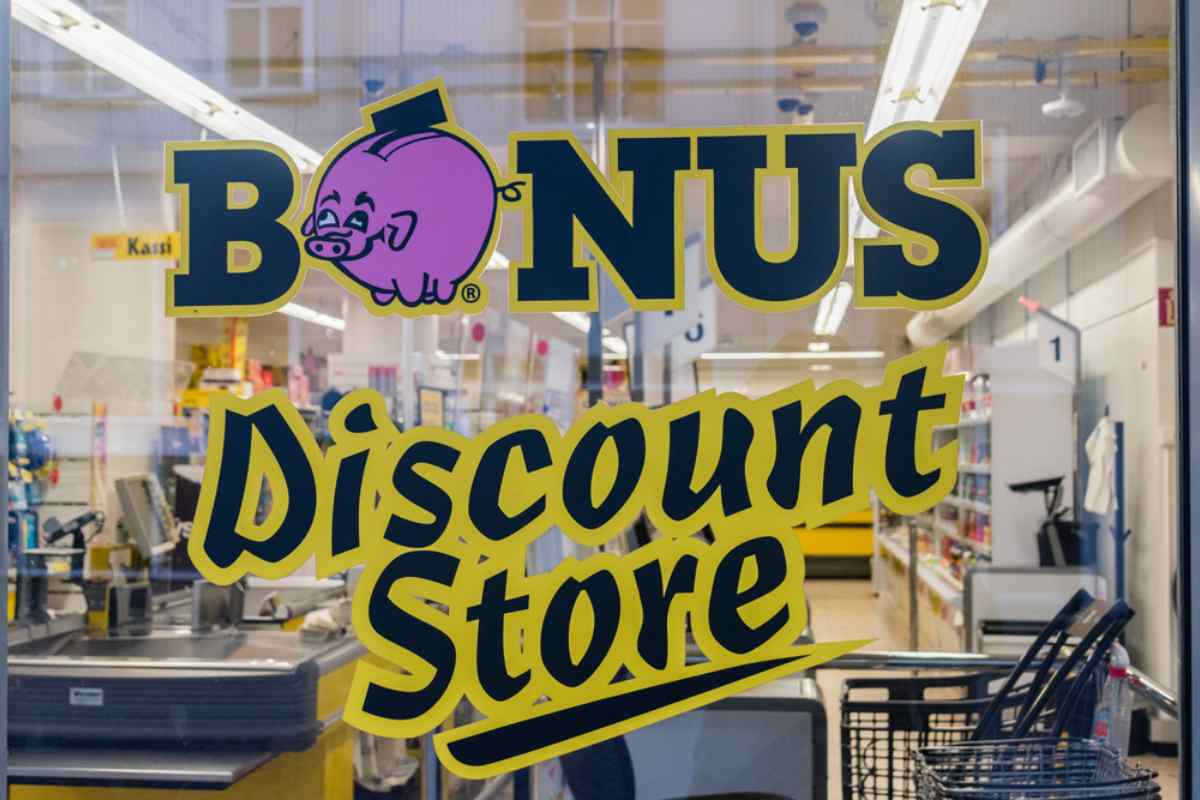
The pink pig logo is popular and makes it easy for visitors to spot the nearest location. While most of these stores are in Reykjavik, you will find them throughout the country. Stores typically open at 10 or 11 am, so plan ahead.
In addition to its affordability, Bónus is recognized for its green practices. In fact, it was the first Icelandic grocery chain to get rid of plastic bags and adopt biodegradable options. Sustainability is a part of their internal policy to reduce the store’s carbon footprint.
Krónan
Krónan is a top choice for food shoppers looking for healthy or organic options. Prices are similar to Bónus, but Krónan stores usually have a larger selection, especially if you want vegan or organic products.
Health-conscious shoppers often prefer Krónan because it promotes healthier choices overall. For instance, the store features nutritious snacks in the checkout lines instead of candy like other stores. Krónan works closely with local producers to stock specialty items from Icelandic farmers and sometimes hosts farmers’ markets to improve community connections.
They have locations throughout Reykjavik and in south Iceland, making it easy to shop sustainably while supporting local farmers.
Netto
Netto, established in 1981, has become another affordable option for locals and visitors. They are known for competitive pricing, allowing you to stock up on everything you need without overspending.
However, Netto doesn’t just have food. These stores often have household items, from wool for knitting to kitchen utensils, making it a one-stop shop. Netto was also the first Icelandic grocery store to implement online food shopping in Iceland, giving you the convenience of getting your groceries delivered. These stores have locations in Reykjavík, Höfn, Egilsstaðir, Ísafjörður, and more.
Netto carries about 1,100 products in their online and physical stores with many popular name brands. Some locations are open 24/7, allowing you to shop later in the evening or early in the morning, which isn’t possible at other grocery stores.
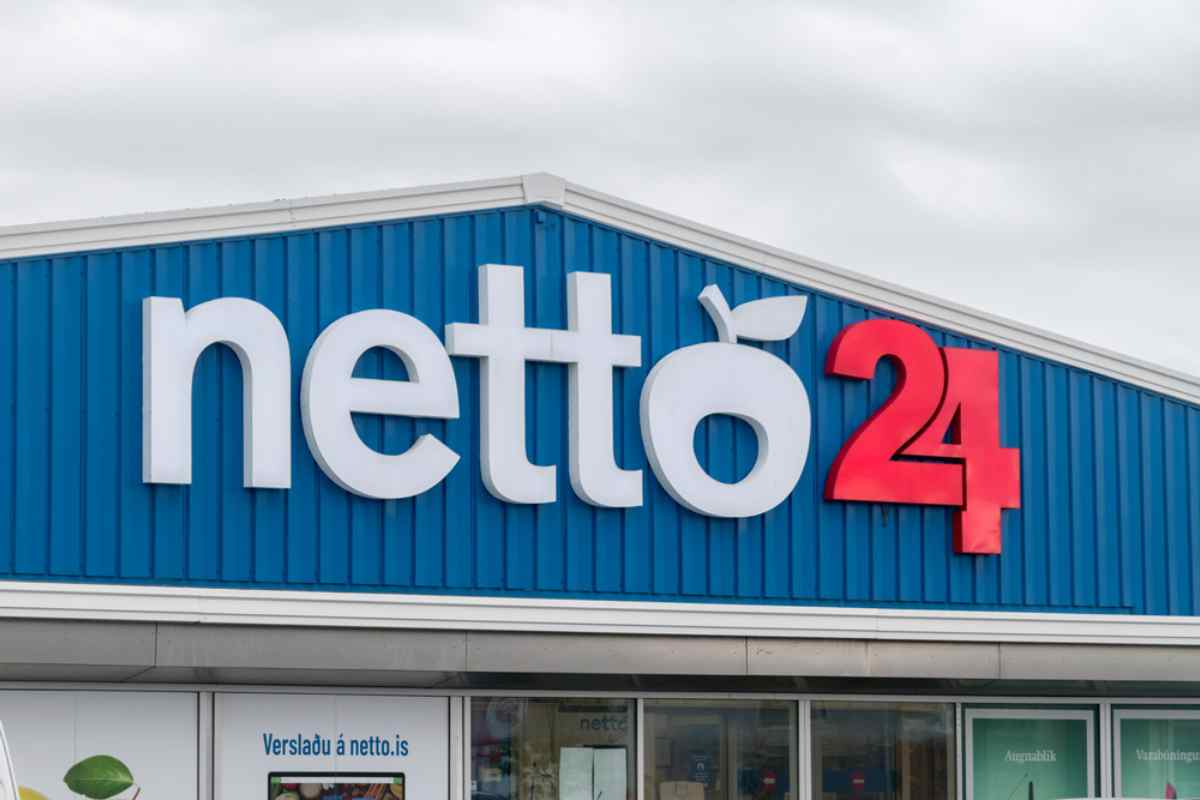
Mid-Range and Specialty Stores
Mid-range grocery stores in Iceland offer a vast selection of products and food, ensuring everyone can find something based on their dietary needs and preferences. You will find a balance of affordability and diversity, mixing familiar brands with specialty items. If you’re looking for convenience and more choices, consider mid-range stores for your grocery shopping experience.
Hagkaup
Hagkaup is considered a premier supermarket with an extensive selection of products and a higher-end shopping experience. It was established in 1959 as a mail-order company and has since grown into a major chain with seven locations. Five are in Reykjavík, and one is in Akureyri.
While the budget grocery stores primarily focus on food, Hagkaup has over 60,000 items available. You can expect to find low-cost clothing and other products like electronics, household goods, and cosmetics, giving you everything you need in one stop.
Groceries in Hagkaup are typically more expensive than budget stores, but they have better quality and a bigger variety, particularly of specialty foods, such as local options and organic food. Some of these stores are open 24/7, while others are open until midnight. However, the Kringlan location has more limited hours.
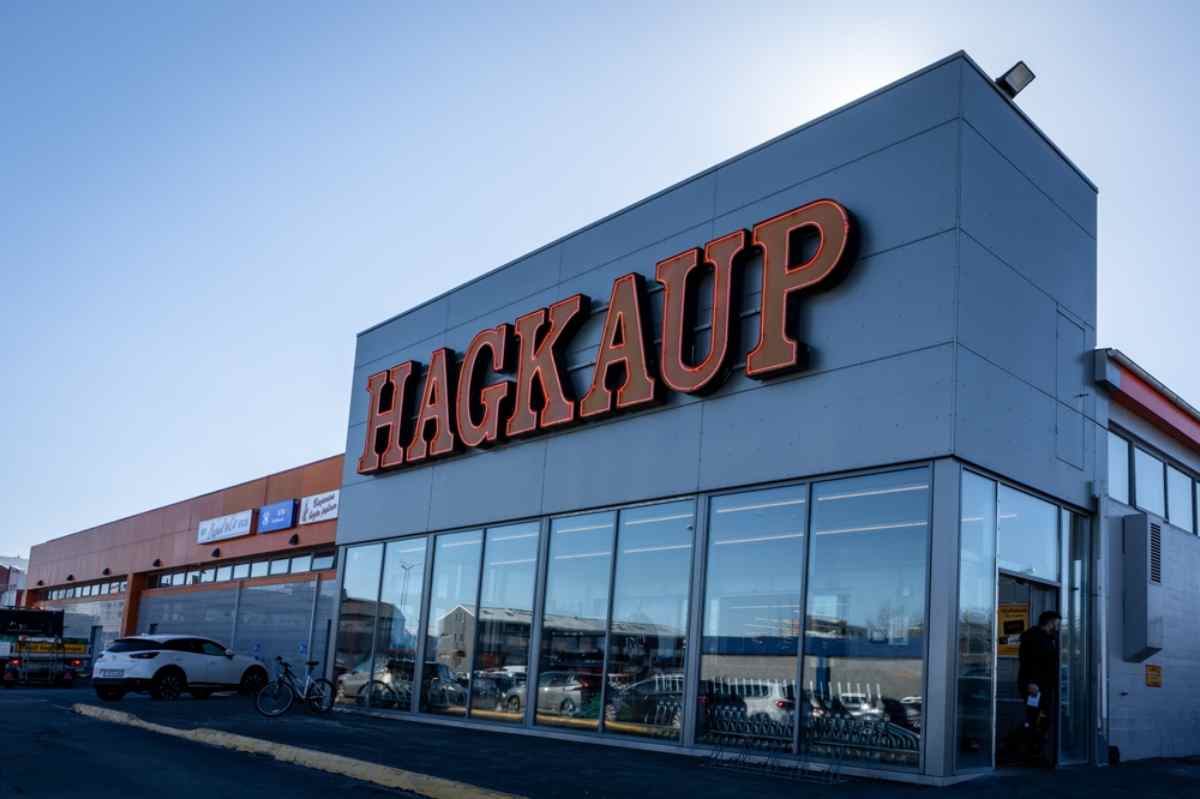
Iceland
Iceland is a British supermarket chain that has made a home in the Icelandic grocery scene in 2012. These stores have a large selection of frozen foods, ready meals, and other essential grocery items. Locals and tourists rely on the Iceland stores for convenient meal options and fresh produce.
The Iceland store has five locations in the capital area. While it provides a distinct shopping experience, it isn’t as popular or recognized as the budget stores. Interestingly, the branding for the store has triggered legal disputes with the country of Iceland, which has given the company more attention.
Typical Opening Hours of Icelandic Supermarkets
Planning a late arrival or an early start? Store hours can make or break your first shop. Use these as typical ranges. Actual hours vary by chain, location, and season. Check each location on Google Maps or the chain’s website before heading over.
|
Chain |
Typical Hours (local) |
Notes |
|
Bónus |
10:00 AM to 6:30 PM |
Budget chain; shorter hours, especially weekends/holidays. |
|
Krónan |
9:00 AM to 9:00 PM |
Longer daily window; good for evening stock-ups. |
|
Nettó |
Varies (some 24/7) |
Select locations run 24/7; others keep standard daytime hours. |
|
Hagkaup |
Many until midnight; some 24/7 |
Most late night friendly; best chance to find something open. |
Convenience Stores
Like other countries, convenience stores are the most expensive option for buying groceries. They are found throughout Reykjavík, with flashy signs that attract attention. These stores often have English labels, catering more to tourists. However, visitors are often surprised by the high prices they find. These stores can be a quick choice for snacks and pre-made meals, but they aren’t for travelers on a tight budget.
10/11
10/11, or “Tíu Ellefu” in Iceland, is a popular convenience store chain that is highly accessible and features many essentials. You will primarily find these stores in Reykjavík, including just after customs at Keflavik Airport.
At 10/11, customers will find a variety of convenience items, including snacks, drinks, basic groceries, and ready-to-eat meals, for quick stops. The stores are open 24/7 and may be the only option to satisfy late-night cravings or make last-minute purchases.
Before shopping at 10/11, it’s important to be aware that things will cost as much as 50% higher than the budget stores like Bónus or Krónan. These stores are most often located close to tourist attractions and hotels, catering to visitors who may have missed the opening hours of other grocery stores. Try not to shop here unless it’s unavoidable.
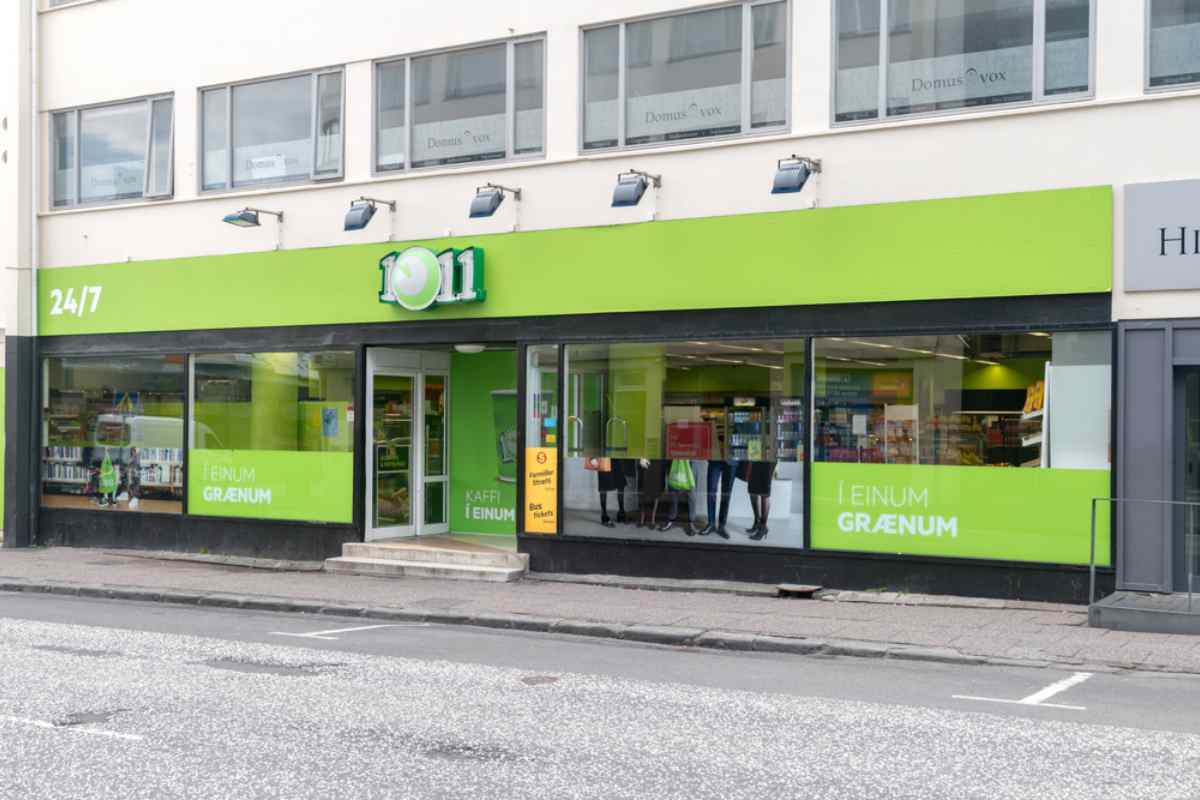
Krambúðin
Krambúðin is an accessible convenience store that is often in smaller towns and rural areas. These stores aim to serve local communities with a mix of grocery essentials, fresh produce, packaged foods, and household items.
Prices at Krambúðin are higher than at the larger supermarkets in Iceland, but it offers a more convenient location for residents and visitors in more remote locations. You can often find fresh baked goods as well, making it a good stop for a snack or light meal on your journey.
Krambúðin stores are found in smaller towns like Laugarvatn and Flúðir to cater to less-populated areas. They are designed to meet immediate needs with nutritious options and essentials for daily life when other grocery stores may be more difficult to find.
Grocery Stores in Reykjavík and Major Towns
Reykjavík packs plenty of supermarkets, and while Iceland isn’t exactly a bargain, the capital still offers options for every budget, depending on the neighborhood you’re staying in. Head to the big chains around Downtown, Grandi, Kringlan, or Skeifan to stock up before a road trip.
Pro tip: Once you leave the city, grocery stops get rarer and more spread out, but Akureyri in the north and Egilsstaðir in the east are reliable places to refill your pantry.
Gas Station Shops as a Last Resort
Chains like Olís, N1, and Orkan sell quick essentials (snacks, sandwiches, bread, milk, coffee, basic pantry items). Prices are usually higher than at supermarkets like Bónus or Krónan, so think of these as convenience stops rather than your main shop.
This matters on road trips: in remote areas these stations can be the only option open or available. Krambúðin covers some small towns, but coverage and hours vary, so many travelers end up relying on gas station shops.
Pricing and What to Expect in Icelandic Grocery Stores
Before grocery shopping in Iceland, you should take time to understand the local pricing and learn what you can expect to find on store shelves. Knowing the costs of essentials and how to save money can help you keep your budget under control.
Common Prices of Essential Items
Be prepared for items to be higher than what you are used to in your home country, especially imported goods. Iceland is heavily reliant on imports, making things like fresh produce and dairy more costly. Some items are only available seasonally. Here are some of the most common grocery prices for standard items:
- Bread (1 loaf): 400-500 ISK (about $3-4 USD)
- Milk (1 liter): 200-300 ISK (about $1.50-2.50 USD)
- Eggs (12-pack): 700-800 ISK (around $5.50-6.50 USD)
- Cheese (500g): 1,200-1,500 ISK (about $9-12 USD)
- Coffee (250g): 600-800 ISK (about $4.50-6.50 USD)
- Apples (1 kg): 400-600 ISK (about $3-5 USD)
- Bananas (1 kg): 300-400 ISK (about $2.50-3.50 USD)
- Chicken breast (1 kg): 1,800-2,200 ISK (about $14-18 USD)
- Pasta (1 kg): 400-600 ISK (around $3-5 USD)
- Rice (1 kg): 500-700 ISK (about $4-6 USD)
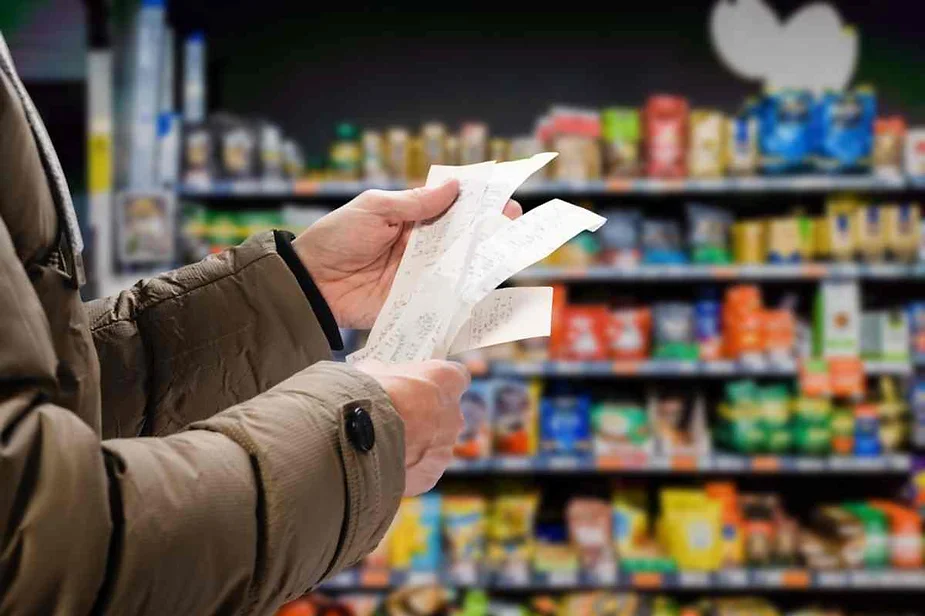
How to Save on Groceries in Iceland
You will find it easier to stick to a budget when grocery shopping in Iceland with the right strategies. Here are some tips you may find useful:
- Shop at Bónus: Your first stop after picking up your rental car should be a shopping trip to Bónus.
- Choose Store Brands: Instead of buying popular name brands, consider store brands. They are generally cheaper and a similar quality. Prices don’t differ much between locations.
- Buy Alcohol at Duty-Free: Alcohol in Iceland is expensive due to taxes and is only sold in special liquor stores. Buy in duty-free to save money.
- Purchase Frozen Produce: Fresh produce costs more and doesn’t last as long as frozen vegetables, fruits, and meat.
- Plan Meals and Avoid Convenience Stores: Plan your meals to avoid last-minute stops at expensive convenience stores to reduce your costs.
A Unique Grocery Shopping Experience in Iceland
Grocery shopping in Iceland can be a truly unique experience that gives you insight into Icelandic culture and values. You will find local products that reflect the country’s heritage and observe the eco-friendly practices Iceland uses in daily life.
Local Products You Should Definitely Try
Visiting Iceland requires trying Icelandic cuisine. It’s all part of the adventure. Grocery stores carry local products that showcase the country’s unique flavors. Here are several options to consider purchasing to eat like an Icelander:
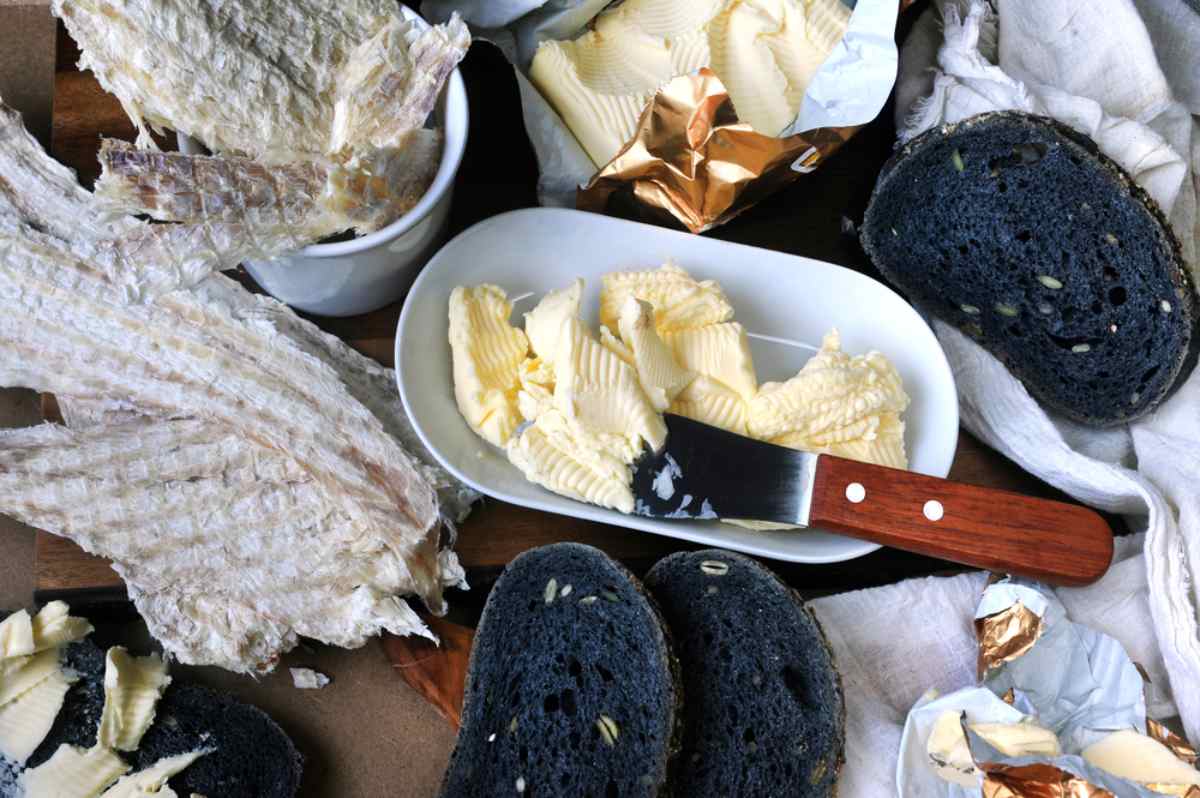
- Skyr: This dairy product is thick and rich in protein. It’s similar to yogurt but creamier and is classified as a soft cheese. It comes in flavors like vanilla, blueberry, strawberry, and more. It’s a staple in Icelandic households.
- Smoked Lamb (Hangikjöt): The rich, smoky flavor of smoked lamb pairs perfectly with Icelandic rye bread, which is a favorite in Icelandic cuisine.
- Lava Salt: This flaky sea salt is infused with activated charcoal. It’s mineral-rich and adds a distinct flavor to meals. It’s a great souvenir to take home.
- Harðfiskur: Dried cod or haddock is a common snack in Iceland. It’s chewy and contains a lot of protein. Some Icelanders enjoy it with a bit of butter.
- Icelandic Rye Bread (Rúgbrauð): This dense, slightly sweet rye bread was traditionally baked in the ground with geothermal heat. It has a unique, earthy flavor.
Sustainable and Dietary Choices in Icelandic Grocery Stores
Sustainability and dietary awareness are a top priority in supermarkets in Iceland. Locals and travelers appreciate the commitment to food quality. While some are imported, fresh fruits and vegetables are often grown in greenhouses using geothermal energy.
Livestock in Iceland often grazes free-range due to Iceland’s animal welfare standards and sustainable practices. Most grocery stores no longer use plastic bags, so you will need to bring or purchase reusable or paper bags. In Hafnarfjordur, there is a plastic-free corner store called Matarbúðin Nándin.
Vegetarian and vegan diets are becoming more popular. Iceland’s restaurants and grocery stores are keeping up with this trend. You will find a variety of fresh fruits and vegetables at most shops. However, if you need kosher or halal foods, you may have to look more carefully. Some items may be available at Krónan, Bónus, and Netto, but they may be more difficult to find. Most grocery stores also have gluten-free options.
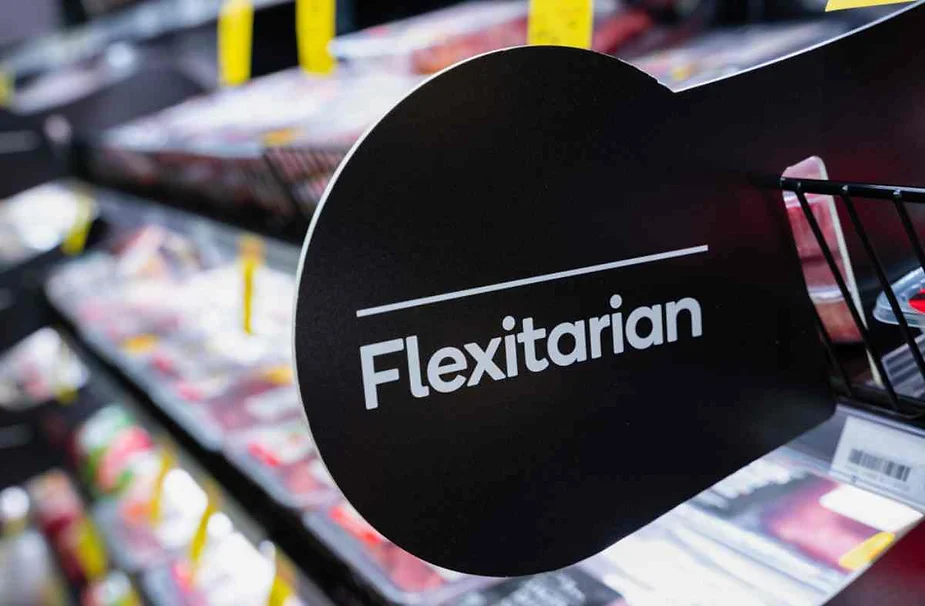
Tips for Grocery Shopping on Your Road Trip
Before you embark on your first grocery shopping trip, check out these tips to help you get a better experience and save money in the long run.
- Use Google Translate: Expect labels to be written in Icelandic (and sometimes other languages depending on where it’s from). The Google Translate app is a valuable resource for identifying products and ingredients.
- Bring a Bag: Plastic bags generally aren’t used in Iceland, so you will need a reusable one. Most stores have paper or biodegradable bags to buy as well.
- Check Meat Labels: Iceland has unique meats like reindeer or foal. Always read the labels carefully, especially if you prefer to stick to beef, pork, chicken, or lamb.
- Look for Icelandic Lamb: Authentic Icelandic lamb will be marked with a Protected Designation of Origin label to confirm it’s a local product.
- Visit Vínbúðin for Alcohol: All alcohol over 2.25% will only be sold in the state-run liquor store called Vínbúðin. Don’t be fooled by the low alcohol beer at the grocery stores.
- Payment Methods: Credit cards (mostly Visa and Mastercard) are widely accepted, even in remote areas. You can also use contactless payment. Keep in mind, while cash is accepted, self-checkouts won’t take it. Foreign currency often can’t be used. It’s always best to have a small amount of Icelandic Króna on hand in case of equipment failures or other uncommon instances.
Cultural Tips for Grocery Shopping in Iceland
Here’s a quick primer on what grocery shopping feels like in Iceland so you’re not caught off guard at the checkout:
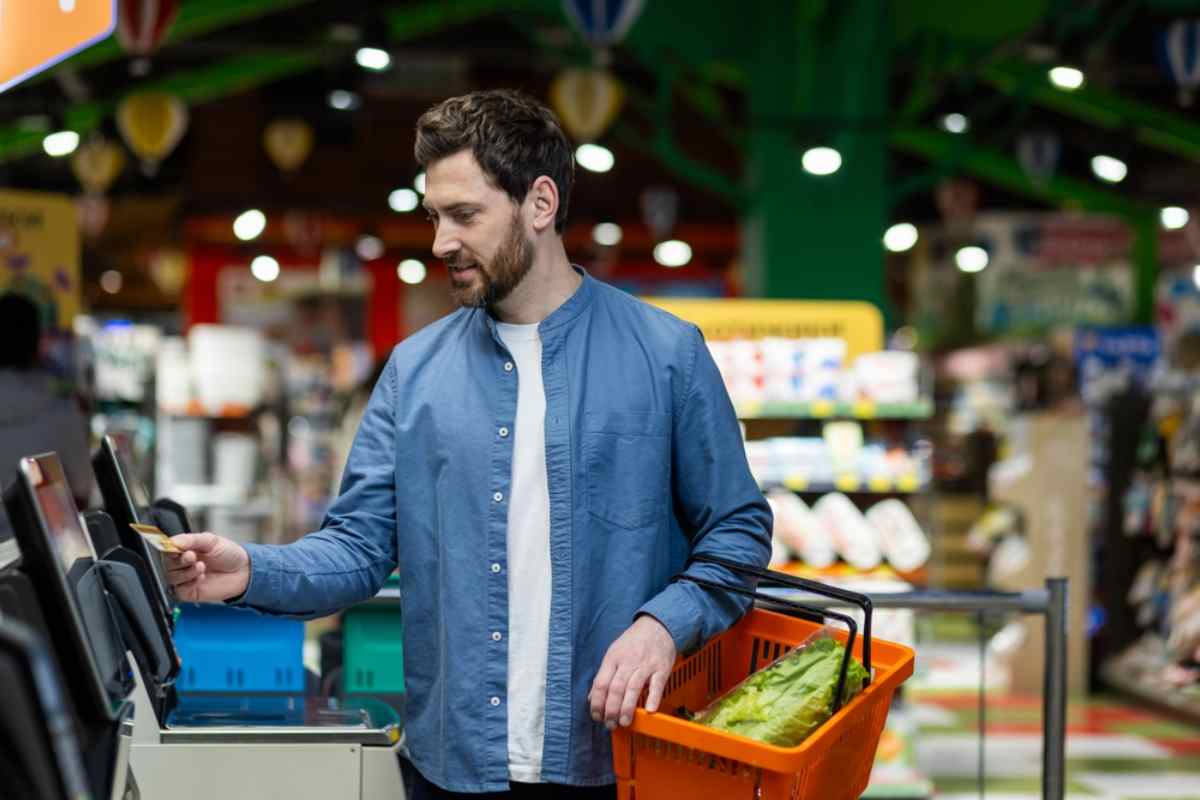
- Self-checkout is everywhere in Reykjavík and bigger towns. You’ll see staffed lanes too, but most locals use the machines.
- Cards over cash. Iceland is almost cashless. Debit and credit cards work nearly everywhere, even for tiny purchases.
- Weekend “big shop.” Many Icelanders do their main grocery run on Saturdays or Sundays, so aisles and parking lots can get busy.
- Bag your own items. After paying, you’ll usually pack your groceries yourself at the end of the lane.
- Bring a reusable bag. Stores charge for bags. A foldable tote saves money and clutter.
- Alcohol is separate. Supermarkets don’t sell wine or stronger beer. For that, go to Vínbúðin (state liquor store).
- Queue etiquette. Lines are orderly and quiet. A quick “hæ” and “takk” go a long way.
The Best Grocery Stops Along the Ring Road
To stock up on groceries for your journey around Iceland, it’s best to stop in the larger cities or towns like Reykjavík and Akureyri. They will have the best selection of grocery stores with budget-friendly shops like Bónus and Krónan, saving you money over waiting to shop in remote areas. Waiting until you reach smaller towns means fewer options and smaller stores that have a reduced selection and higher prices.
Getting the Most Out of Your Grocery Store Experience in Iceland
It can be overwhelming to visit an Iceland grocery store. The prices may be higher than you’re used to, making it difficult to keep to your budget. You may also reach a remote area with limited options and expensive dining options. For these reasons, you need to prepare yourself for the shopping experience.
When you rent a car in Iceland, you can stock up on the essentials at the budget-friendly grocery stores, particularly in Reykjavík or Akureyri. Your rental car can easily carry all the supplies you need for your road trip, saving time and money. You’ll feel better prepared to get the experience you’ve always wanted.
Frequently Asked Questions About Grocery Shopping in Iceland
Do I need to bring my own bags?
Yes, Icelandic grocery stores don’t provide plastic bags, so bringing your own reusable bags or buying them is best. You can also purchase paper or compostable bags at most stores.
Are there online grocery shopping options in Iceland?
Yes, many grocery stores in Iceland offer online shopping, including Krónan, Iceland, and Netto.
Are groceries expensive in Iceland?
It depends where you’re from, but yes, groceries in Iceland are generally expensive because of high import costs and the high quality of the food. Budget-friendly stores like Bónus and Krónan can help you keep your costs under control.
What is the cheapest supermarket in Iceland?
Most people find Bónus to be the lowest-cost supermarket in Iceland. They have a variety of products at competitive prices. It’s popular among locals and tourists who want to save money.
How much is a cup of coffee in Iceland?
A cup of coffee in Iceland generally costs 500 to 700 ISK (approximately $3-5 USD). The price varies by location and establishment type. For instance, cafés in Reykjavík are typically more expensive.
Is the “Iceland” Supermarket the Same as Groceries in Iceland?
No. “Iceland” (Iceland Foods) is a British supermarket chain known for frozen foods in the UK. It’s not the same as supermarkets in the country of Iceland, and it doesn’t represent local grocery options.




